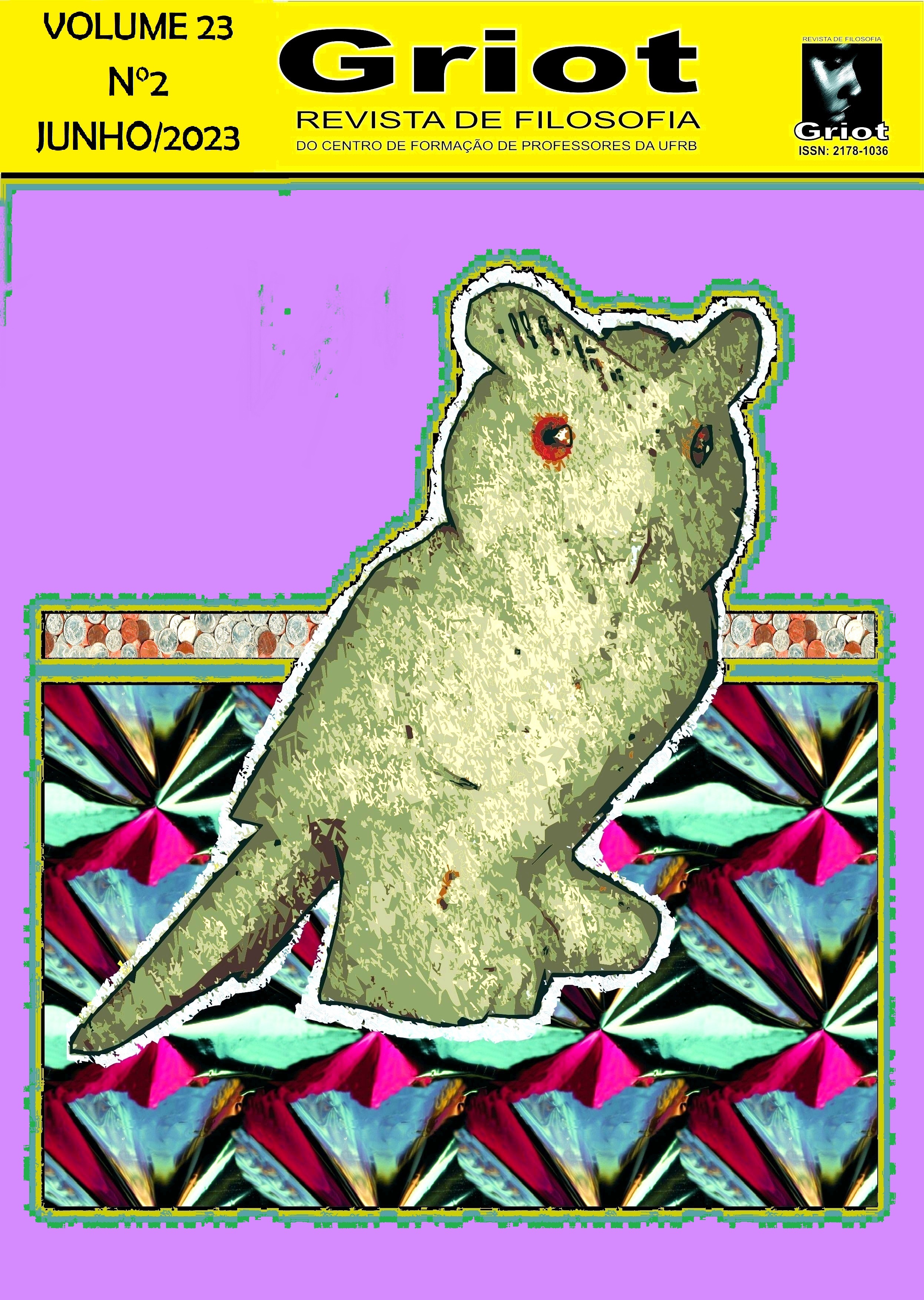The notions of convenience and appearance as ethical news in Machiavelli
DOI:
https://doi.org/10.31977/grirfi.v23i2.3242Keywords:
Ethics; Appearance; Convenience; Virtu; Fortune.Abstract
Machiavelli's theoretical-practical positions and their opposition to traditional morality are examined in order to understand how his new ethical proposal is structured. The novelty is based on the political categories of convenience and appearance: it is admitted to resort to all means necessary to achieve the established ends, and to remain in power, obtain honor and glory, no matter what the Prince is, but what appears to be before subjects and allies. Hence the need for a Prince with a firm hand and who defends, without measuring efforts, the integrity and well-being of his people. The ruler's morals will be guided by the political situation and not by the ideal of a universal, abstract and perfect ruler. Political power has a mundane origin, born of the very malignity that is intrinsic to human nature, but it constitutes itself, albeit in a precarious and transitory way, as the only possibility to face the conflict. Finally, it is up to the Prince to use a set of expedients and techniques capable of ensuring maximum effectiveness in preserving the State and preserving its supreme purpose - order and harmony.
Downloads
References
AMES, Luiz José. Maquiavel pensador da ação política: uma análise a partir de O Príncipe. Princípios: Revista de Filosofia (UFRN), v. 26, n. 49, p. 9-30, 30 jan. 2019. https://doi.org/10.21680/1983-2109.2019v26n49ID14162
AMES, Luiz José. A concepção maquiaveliana de necessidade política. Kriterion (UFMG), v. 59, p. 765-788, 2018. https://doi.org/10.1590/0100-512X2018n14107jla
AMES, Luiz José. Liberdade e conflito: o confronto dos desejos como fundamento da ideia de liberdade em Maquiavel. Kriterion (UFMG), v. 50, p. 179-196, 2009. https://doi.org/10.1590/S0100-512X2009000100009
AMES, Luiz José. Lei e violência ou a legitimação política em Maquiavel. Trans/form/ação (UNESP. MARÍLIA), v. 34, p. 21-42, 2011. https://doi.org/10.1590/S0101-31732011000100003
ARANHA, Maria Lúcia de Arruda. Maquiavel: a lógica da força. São Paulo: Moderna, 1993.
BIGNOTTO, Newton. Maquiavel. Rio de Janeiro: Jorje Zahar, 2003.
BARINCOU, Edmond. Maquiavel por ele mesmo. Brasília: Editora Universidade de Brasília, 1991.
BORON, Atilio (Org.). Filosofia Política Moderna: de Hobbes a Marx. São Paulo: CLACSO, 2006.
CASSIRER, Ernest. O mito do Estado. Rio de Janeiro: Zahar, 1976.
HEBECHE, Luiz Alberto. A guerra de Maquiavel. Ijuí: UNIJUÍ, 1988.
MACEDO JR, Ronaldo Porto (Org.). Curso de filosofia política: do nascimento da filosofia a Kant. São Paulo: Atlas, 2008.
MAQUIAVEL, Nicolau. O Príncipe. São Paulo: Nova Cultural, 1987.
MAQUIAVEL, Nicolau. O Príncipe: com comentários de Napoleão Bonaparte. Trad. Mônica Baña Álvares. Rio de Janeiro: Elsevier, 2003.
MAQUIAVEL, Nicolau. Discurso sobre a Primeira Década de Tito Lívio. In. WEFFORT, Francisco C. (org). Os Clássicos da Política. 13.ed. São Paulo: Ática, 2004.
NEDEL, José. Maquiavel: concepção antropológica e ética. Porto Alegre: EDIPUCRS, 1996.
OLIVEIRA, N. A.; ALVES, M. A. Justiça e políticas sociais na Teoria de John Rawls. Sociedade em Debate, [S. l.], v. 16, n. 1, p. 25-43, 2010. https://revistas.ucpel.edu.br/rsd/article/view/335.
SADEK, Maria Teresa. Nicolau Maquiavel: o cidadão sem fortuna, o intelectual da virtú. In: WEFFORT, Francisco C. (org). Os Clássicos da Política. São Paulo: Ática, 2004.
Downloads
Published
How to Cite
Issue
Section
License
Copyright (c) 2023 Marcos Alexandre Alves

This work is licensed under a Creative Commons Attribution 4.0 International License.
The authors who publish in Griot: Revista de Filosofia maintain the copyright and grant the magazine the right of first publication, with the work simultaneously licensed under the Creative Commons Attribution 4.0 International License, allowing sharing and adaptation, even for commercial purposes, with due recognition of authorship and initial publication in this journal. Read more...









































































